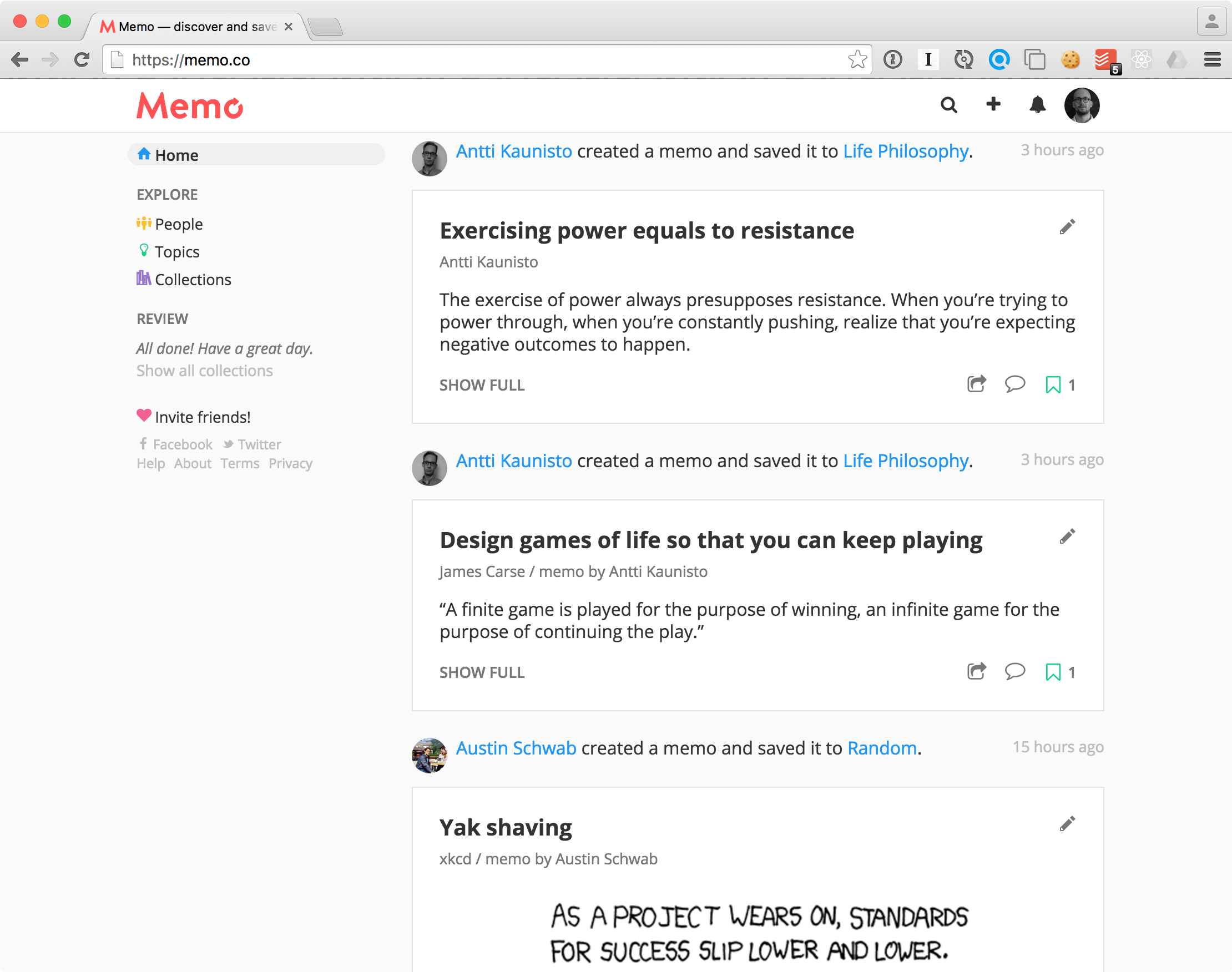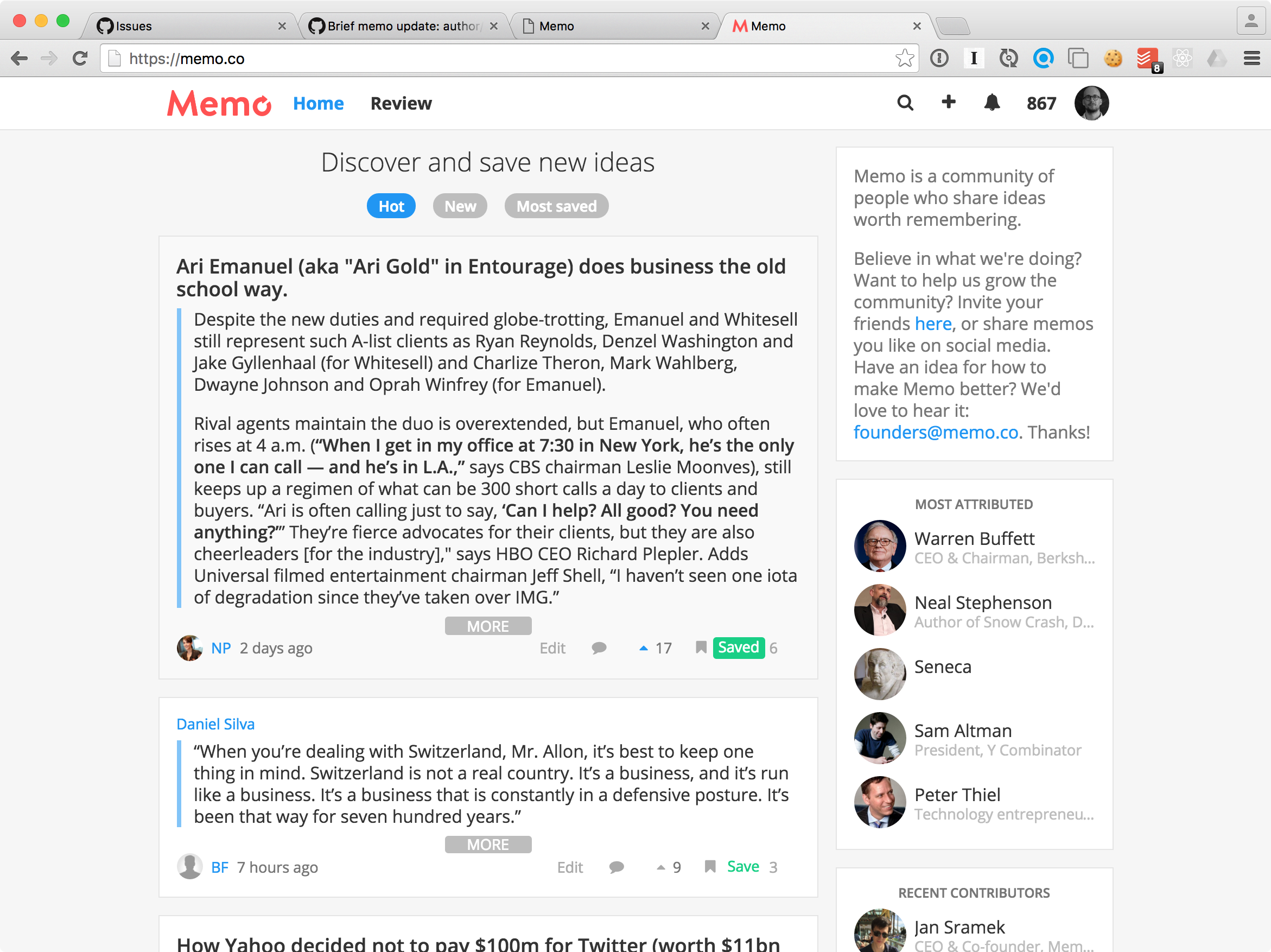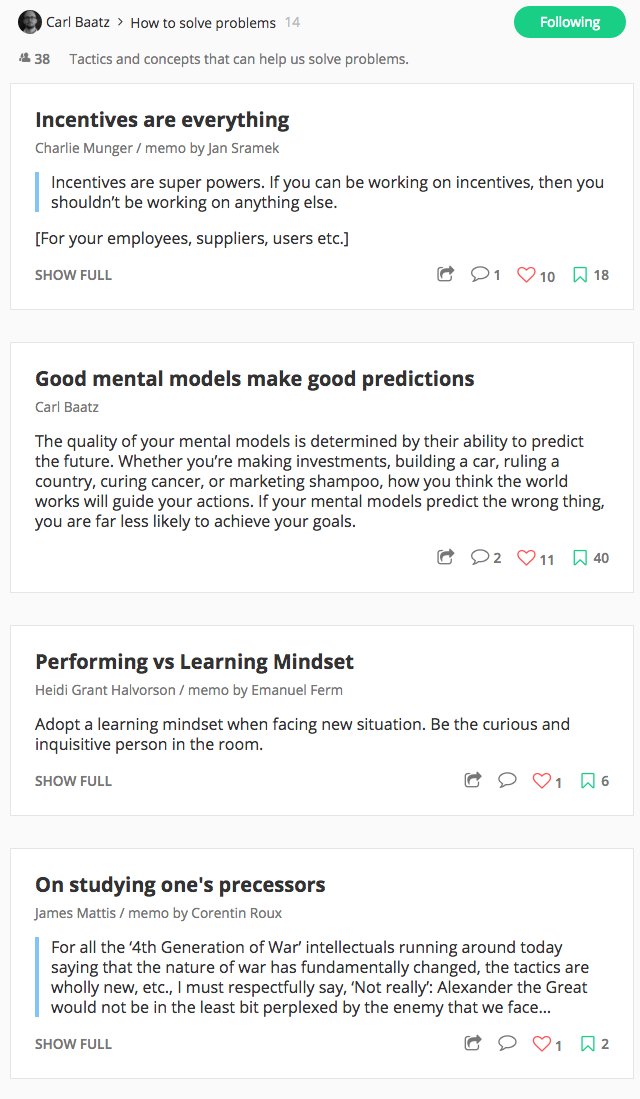Memo — a learning-app experiment

Back in 2015, Jan Sramek and I had just finished working on a learning platform for enterprises (Better). We had approached that from an interest in how to accelerate learning with technology. After failing to scale the business, we sold the platform and were left wondering if we might have been better off working on a consumer app trying to solve a problem we had ourselves (being somewhat weary from selling to enterprises might have played a role).
One of our frustrations was that there was no good end-to-end app to support individual learning outside of structured courses — something that would help you discover, curate, and learn. Individual apps, while not amazing, existed for those activities — say Twitter for discovery, Evernote (back then) for curation, or Anki for (some aspects of) learning. We had a weak hypothesis that despite the effort and delayed reward inherent in learning it might be possible to create a compelling product that would grow organically if we integrated discovery, curation, and learning into one experience and added social dynamics such as reputation to that.
We settled on the concept of a “Memo” as the core artefact. Similar to a Tweet, it was intended to be a short, self-contained summary of a noteworthy idea. We iterated through lots of permutations of the app based around that — with and without comments, different structures, collections, reminders, reviews, and feeds, for example.



However, after about a year, we hadn’t been able to convince ourselves that there was a sufficiently distinct and sticky product at the intersection of discovery, curation, and learning. Most problematic was that we, as end users, didn’t get a visceral feeling of being smarter after months of use, compared to the status quo of learning through articles, books, podcasts, or Twitter.
Perhaps we had just missed the right permutation, but we felt that we had explored the space sufficiently and not found anything that blew us away by being significantly better than alternatives, so we gave back the remaining investor money and moved on.
Seven years later, I still think that conclusion is roughly right. While the ability to quickly consume a large number of interesting ideas is compelling and does have value — in particular being able to draw connections between ideas as Andreessen points out above — Twitter et. al. serves that need well enough. Adding curation and learning features such as reviews did not seem to improve the experience sufficiently to make us really want to come back.
Postscript
On the pure learning side I suspect there’s more to explore. In particular, learning hard skills using direct instruction or other forms of deliberate practice seems underserved to me. Advances in AI seem poised to expand the domains where effective practice — prompt, answer, correctional feedback, repeat — can be automated. While these could substantially enhance learning outcomes, they will not magically remove the need to put in effort and focus.
A related area to learning that would also be interesting to explore is credentials and certifications. These are arguably a large part of what university fees pay for, and there may be a way to unbundle teaching and certification, including how that relates to job and skill matching.
Thanks to Jan Sramek for commenting on drafts of this.